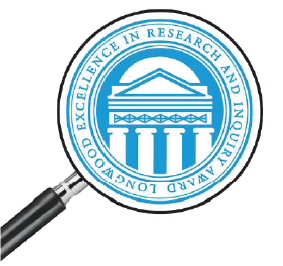Document Type
Poster
Publication Date
Spring 2019
Abstract
Flavonoids are natural compounds found in dietary elements such as soy, grains, and vegetables that have the potential to bind to the estrogen receptor. Activation of the estrogen receptor drives myeloid derived suppressor cell (MDSC) accumulation, cells that increase during cancer, inflammation, and infection. In this study, we are investigating specific flavonoids, such as epigallocatechin-3-gallate (EGCG), kaempferol, naringenin, daidzein, and genistein, for their ability to mimic estrogen. After examination, we expect that MDSC differentiation will decrease upon treatment of the chosen flavonoids, leading to reduced carcinogenic effects.
Recommended Citation
Bland, Megan; Elliott, Cecilie; and Kosiorek, Kathryn, "Ability of Flavonoids to Mimic the Estrogen Receptor to Drive Myeloid Derived Suppressor Cell Differentiation" (2019). Spring Showcase for Research and Creative Inquiry. 26.
https://digitalcommons.longwood.edu/rci_spring/26



Comments
Faculty Adviser: Dr. Amorette Barber